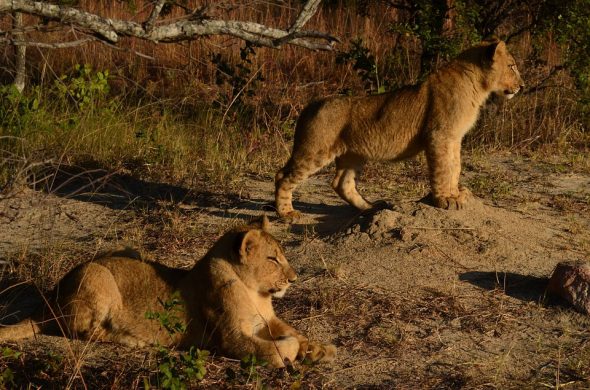10 October 2017 (UN News Centre): To help African, Caribbean and Pacific countries stop unsustainable wildlife hunting, conserve natural heritage and strengthen people’s livelihoods and food security, the United Nations agriculture agency launched on Tuesday a €45 million multi-partner initiative.
Funded by the European Commission, the seven-year Sustainable Wildlife Management programme will be led by the UN Food and Agriculture Organization (FAO) to contribute to conserving and sustainably using wildlife in forests, savannas and wetlands by regulating hunting, strengthening indigenous and rural communities’ management capacities and increasing the supply of sustainably produced meat products and farmed fish.
“Wildlife has ecological, social and economic value. It is important for rural development, land-use planning, food supply, tourism, scientific research and cultural heritage,” said FAO Director-General José Graziano da Silva speaking at today’s launch.
“This programme will protect wildlife species, conserve biodiversity, and maintain the essential ecological roles of wildlife. It will also help to secure the stocks and ecosystems services that are essential to the livelihoods of the poorest communities on the planet,” he added.
“Wildmeat crisis”
Countries participating in the project include Chad, Democratic Republic of Congo, Gabon, Guyana, Madagascar, Mali, Papua New Guinea, Republic of Congo, Senegal, Sudan, Zambia and Zimbabwe.
Hunting and fishing in the targeted countries is often unsustainable – affecting wild animal populations in forests and savannas – causing what FAO calls a “wildmeat crisis.”
For example, the programme estimates that in the Congo Basin some 4.6 million metric tonnes of wildmeat are consumed annually, an equivalent of approximately half of the beef produced in the European Union.
According to FAO, if hunting wildlife for food is not reduced to sustainable levels, not only will biodiversity be lost, but also countless numbers of families whose livelihoods depend on natural resources will suffer soaring levels of food insecurity and debilitating child malnutrition.
Alternative protein sources
The programme will work closely with national authorities to provide rural communities with alternative protein sources such as chicken, livestock or farmed fish. Doing so will help deter hunting of endangered species, support recovery of their populations and reduce food safety risks that can be associated with the consumption of wild meat.
In places where livestock production is limited or imported meat unavailable or unaffordable, people will continue relying on wild animals to feed their families. However, measures like recognizing people’s customary tenure rights may encourage more wildlife conservation on their land, avoiding unnecessary hunting.
In large urban areas, where wild meat is sold and consumed more as a luxury item, restrictions on wild meat consumption need to be put in place.
The initiative also focuses on creating jobs in the farming sector, empowering women and securing indigenous rights to access the natural resources their livelihoods and cultures depend upon.
The programme contributes to several targets of the Sustainable Development Goals (SDGs) related to food security, sustainable land management and biodiversity conservation, specifically supporting SDG15, this year’s review of which notes that “poaching and trafficking of wildlife remain serious concerns.”















